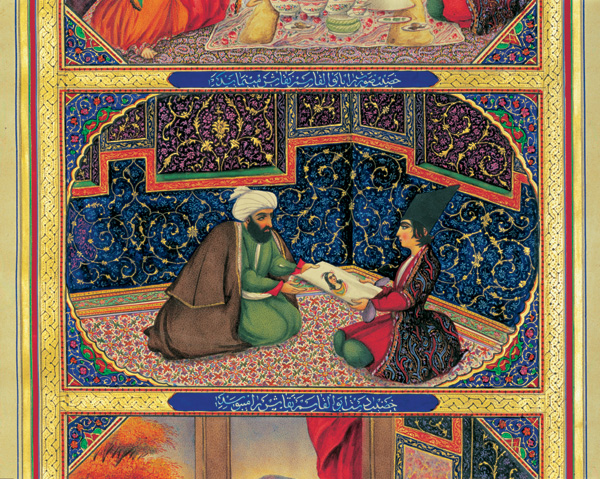What Are Folktales?
A story often with mythical heroes or heroines who are brave and triumph over adversity The themes often reflect the values of the storytellers Good is good and bad is extremely bad Resolutions are decisive Story settings and times are vague The Arabian Nights and Orientalism
by
Yuriko Yamanaka; Tetsuo Nishio
The Arabian Nights and Orientalism
by
Yuriko Yamanaka; Tetsuo Nishio
Arabian Nights/ Tales of the One Thousand and One Nights

"Is it possible, that by telling these tales, one might indeed save one's self"
The Arabian Nights is an ancient, oral collection of stories that continues to captivate both children and adults. These exotic stories originated in the 8th Century A.D. and were told by Persian & Indian storytellers as they traveled along the Silk Road. These tales made their way to Bagdad in the 9th century A.D. and were told in Iraq, Syria, Turkey and India. The tales include love stories, tragedies, comedies, and even erotica. They have an air of mystery and intrigue and until the stories were published were handed down from generation to generation orally.
Antoine Galland, translated the "Arabian NIghts" into French in 1704,and introduced European audiences to these stories. His 12-volume work also contained stories that were not in the original manuscript. He indicated that he was told the stories of "Aladdin" and Ali Baba and the Forty Thieves" by a Syrian Christian storyteller from Aleppo. Later the Arabian Nights was translated into English by Edward Lane and then by Sir. Richard Francis Burton in the 19th century.